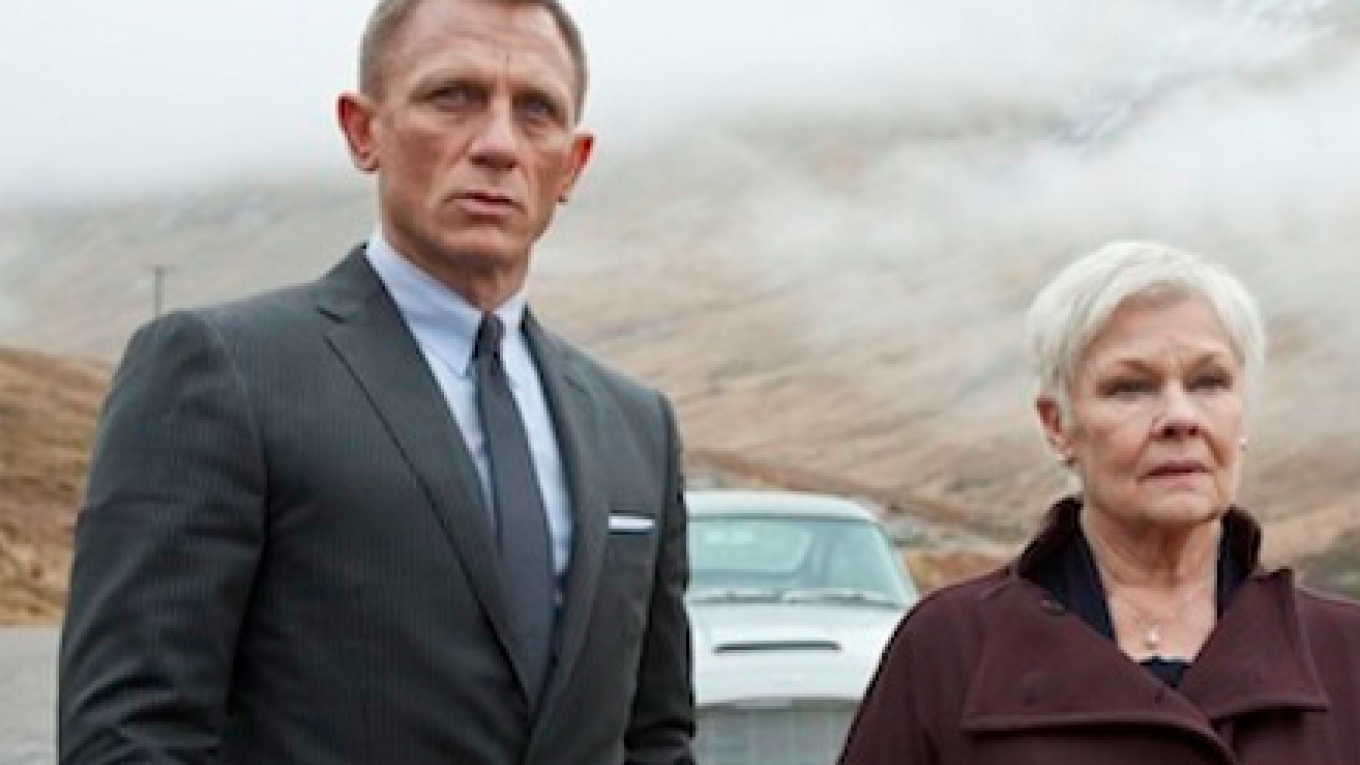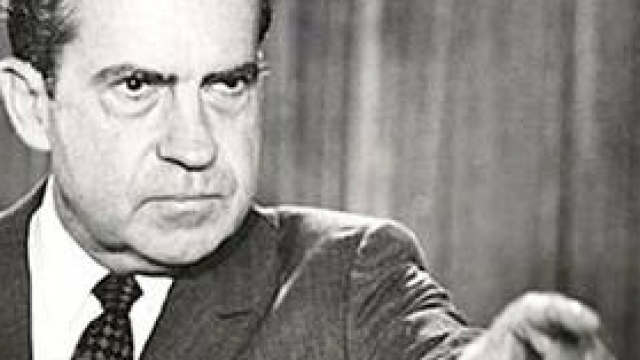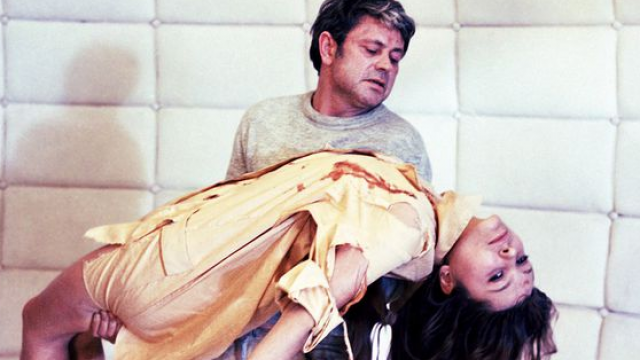It’s Spy vs. Spy Week on Moscow TV, as “the Russian James Bond” goes up against the, er, British one. Who will infiltrate your remote? Beyond dueling super-spies, viewers get back-to-back Soviet Defense Ministers, one mysteriously dying, the next mysteriously not. Oh, and another mystery: who was Russia’s favorite singing cowboy? No, not Cossack, cowboy. Watch and learn:
The Doverie channel continues its second week of the taut and telling Soviet espionage serial “Seventeen Moments of Spring” (1973) [Find out more here]. Episodes 7-12 air Monday through Friday in morning and late-night slots, as fictional Soviet super-agent Stirlitz does his best to thwart a peace treaty between the tottering Third Reich and the USSR’s fictionally backstabbing American allies.
Ah, but STS is no longer ceding the spy thriller audience without a fight. Tuesday through Friday viewers get the first three in the Daniel Craig catalogue of James Bond epics: Casino Royale (2006), Quantum of Solace (2008) and Skyfall (2012). Much has been said, and most of it good, about the new Craig Era in the Bondage tradition that goes back to 1962. And many Muscovites will tell you unambiguously why they find this Bond appealing: “He seems so…Russian!”
Seventeen Moments of Spring Семнадцать мгновений весны. Doverie, Monday at 11:15 a.m. and 11:45 p.m. (Tuesday-Friday times vary slightly)
Casino Royale Казино Рояль. STS, Tuesday at 9:00 p.m. & Wednesday at 9:40 a.m.
Quantum of Solace Квант милосердия. STS, Wednesday at 9:00 p.m. & Thursday at 10:20 a.m.
Skyfall 007: Координаты «Скайфолл», Thursday at 9:00 p.m. & Friday at 9:45 a.m.
Dean Reed was a handsome young actor-singer who gave up a modest TV and recording career in the U.S. to try his luck elsewhere, including Moscow. Reed found his first real success in South America, then expanded on it in East Germany. From there it was a small step to conquering the Soviet audience, which he did with multiple hit albums for the state Melodiya label. Reed was “the Red Elvis,” a shaggy-haired American pop singer of predictable left-wing political views whom the creaking Soviet leadership wanted its young citizens to idolize.
Before his mysterious death by drowning in 1986 in East Berlin, Reed had compiled a sizable corpus of films, most of them “Red Westerns” (aka “Easterns” and “Borscht Westerns”). These were set in America’s Old West, but a West seen through a prism of lefty revisionism. In the East German musical-comedy “Sing, Cowboy, Sing” (1981), Kultura offers viewers young and old a good sample of director-writer-star Reed “in all his glory” – a cross-cross-cultural glory almost unknown to his fellow Americans but which was and remains great indeed for still-loyal Muscovites. Tune in and be amazed at the “Comrade Rock Star” phenomenon – and prepare yourself for a Tom Hanks film biography of this famous singing cowboy that real cowboys never heard of.
Sing, Cowboy, Sing Пой, ковбой, пой. Kultura, Monday at 11:30 a.m.
If you took “20th Century Russian Literature” during the 20th century, you probably concluded that the most famous Russian novelist of the 1920s was Yevgeny Zamyatin (“We”) or Yury Olesha (“Envy”). But the most published and best known Soviet prose writer in the 1920s was in fact Boris Pilnyak, the “ornamental prose” stylist who got onto your college course syllabus not for his major works (“The Naked Year,” Mahogany,” “The Volga Flows into the Caspian Sea”) but for the 1926 novella from which this eponymous Yevgeny Tsymbal film was made: “The Tale of the Unextinguished Moon” (1990). “Moon” tells the story of famed Civil War commander and Soviet defense minister Mikhail Frunze, whose 1925 death on a Moscow operating table — where he found himself at the behest of the Politburo rather than medical specialists — became the subject of rumors extremely unflattering to the Politburo’s chairman, one Josef Stalin.
This is the only one of Pilnyak’s works to reach celluloid to date, and it is probably as good a feature as the ornamental prose rubric will allow. Screenplay by Lithuania’s talented Vytautas Žalakevičius (“Nobody Wanted to Die”). Tune in and see why Soviet authorities frantically confiscated every copy of “The Tale of the Unextinguished Moon” the day after it was published.
The Tale of the Unextinguished Moon Повесть непогашенной луны. TV 1000 Russkoe Kino, Wednesday at 12:20 p.m.
December 1 is the birthday of the legendary Georgy Zhukov (1896-1974), the Red Army commander traditionally credited with saving Moscow – and Stalin and perhaps the entire USSR – from Hitler’s determined and merciless Wehrmacht early in the second phase of World War II. While Zhukov was and remains a national hero, his story is by no means a chronicle of strength-to-strength successes. Not only did the marshal find himself regularly at odds with the militarily illiterate commander-in-chief whose bacon he had to save, but Zhukov’s postwar career was punctuated by humiliations visited from above. These included, as the Sergei Aldoshin documentary “Stalin’s Marshals: Zhukov” (2015) ably outlines, “years of disgrace, attempts to tarnish [his] name, and the arrest and torture of his loved ones.”
Why Zhukov himself wasn’t shot after the war by the ever-suspicious Stalin remains a subject of speculation. Why the military idol did not succeed later in politics is less mysterious: he had little taste for or patience with the Byzantine intrigues of post-Stalin Soviet statecraft, and disliked not calling things and people by their proper names – a trait so un-Soviet it bordered on the anti-Soviet. Tune in this feature for a well-mounted and well-illustrated account of 20th century Russia’s “least Soviet” Soviet marshal, a figure that today’s civilian and military leadership should venerate, yes, but also learn from.
Stalin’s Marshals: Georgy Zhukov Маршалы Сталина. Георгий Жуков. Zvezda, Thursday at 6:30 p.m.
Mark H. Teeter is the editor of Moscow TV Tonite on Facebook
A Message from The Moscow Times:
Dear readers,
We are facing unprecedented challenges. Russia's Prosecutor General's Office has designated The Moscow Times as an "undesirable" organization, criminalizing our work and putting our staff at risk of prosecution. This follows our earlier unjust labeling as a "foreign agent."
These actions are direct attempts to silence independent journalism in Russia. The authorities claim our work "discredits the decisions of the Russian leadership." We see things differently: we strive to provide accurate, unbiased reporting on Russia.
We, the journalists of The Moscow Times, refuse to be silenced. But to continue our work, we need your help.
Your support, no matter how small, makes a world of difference. If you can, please support us monthly starting from just $2. It's quick to set up, and every contribution makes a significant impact.
By supporting The Moscow Times, you're defending open, independent journalism in the face of repression. Thank you for standing with us.
Remind me later.







